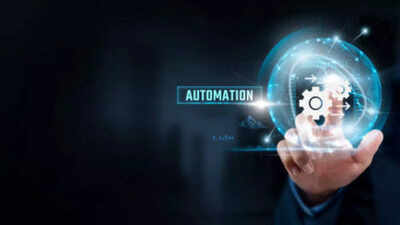ARTICLE AD BOX

In the relentless march of technological progress, the nature of work itself is evolving at an unprecedented pace. Jobs once considered stable pillars of the economy are now facing obsolescence, challenged by automation, artificial intelligence, and shifting societal priorities.
By 2040, many roles that have long defined human labor may no longer exist, leaving workers to navigate a transformed professional landscape. Understanding which careers are most at risk is essential—not as a source of fear, but as a roadmap for adaptation and future-proofing skills.
Cashiers: The checkout of tomorrow
Retail has already begun a quiet revolution. Self-checkout lanes, mobile payment systems, and AI-driven point-of-sale technologies are steadily reducing the need for human cashiers.
As consumers embrace seamless, automated transactions, the familiar sight of a friendly cashier scanning items may become a relic of the past.
Telemarketers: Replaced by intelligent automation
The era of intrusive phone calls may be nearing its end. Sophisticated AI-driven marketing systems now handle consumer outreach with precision, personalization, and scale that human telemarketers cannot match. Alongside growing consumer resistance to unsolicited calls, the role of the telemarketer is increasingly redundant.
Travel agents: The age of autonomous planning
Once indispensable guides to the world, travel agents are being replaced by intuitive online platforms and AI-powered recommendation systems. Today, travelers can plan entire itineraries, compare prices, and book experiences in a matter of minutes—all without human assistance. By 2040, traditional travel consultation may be a niche luxury rather than a standard service.
Taxi dispatchers: The rise of smart mobility
Dispatching is no longer confined to call centers or radio systems.
Ride-hailing apps have automated the process of connecting drivers with passengers, while autonomous vehicles promise to further reduce the need for human intermediaries. The dispatcher of tomorrow may exist only in code, coordinating fleets of driverless cars.
Assembly line workers: Robotics take the lead
Manufacturing, long synonymous with human labor, is undergoing a profound transformation. Robotics and AI systems are increasingly capable of performing repetitive and precise tasks with unmatched efficiency.
As factories embrace automation, traditional assembly line roles are steadily declining, making way for jobs in robotics maintenance, programming, and oversight.
Referees in sports: AI on the field
Even the world of sports is not immune. Advanced video technology and AI-assisted officiating are enhancing fairness, accuracy, and consistency in decision-making. By 2040, many routine calls on the field may be made by algorithms, relegating human referees to supervisory or specialized roles.
Postal workers: The digital displacement
Digital communication has steadily eroded the volume of traditional mail. As e-billing, instant messaging, and cloud storage become dominant, the once-critical postal workforce faces diminishing demand. The delivery of physical letters and parcels is increasingly automated, reflecting the broader shift from paper to pixels.
Bank tellers: Banking without humans
The rise of online banking, mobile payment systems, and advanced ATMs has already reshaped the banking industry.
By 2040, most transactions that once required a teller’s presence can be completed digitally, leaving the human role increasingly focused on advisory and complex financial services.Preparing for the futureThe disappearance of these roles is not merely a forecast—it is a clarion call. The future favors those who adapt, reskill, and embrace emerging opportunities. Fields such as renewable energy, AI oversight, healthcare innovation, and digital infrastructure are expanding, offering roles that demand creativity, problem-solving, and emotional intelligence.
The key to thriving in 2040 is not resisting automation but learning to work alongside it, harnessing technology to amplify human potential rather than replace it.The message is clear: the workplace of tomorrow will reward flexibility, foresight, and continuous learning. Those who anticipate the currents of change, rather than cling to yesterday’s structures, will not only survive—they will define the future of work.



.png)
.png)
.png)
















 1 hour ago
4
1 hour ago
4








 English (US) ·
English (US) ·